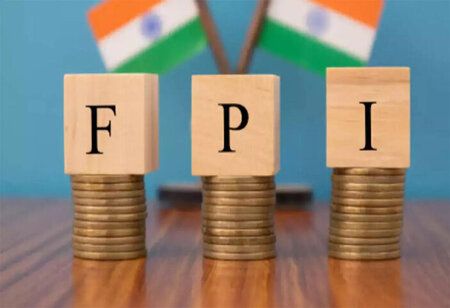Despite rising India-Pakistan tensions, overseas investors remain optimistic about Indian equities, buying for the 14th consecutive session and providing strong support to the Indian stock market.
FPIs shifted their stance towards the Indian stock market in the second half of April, and their buying spree continued into May. According to Livemint data, net buyers have invested ₹43,940 crore in Indian equities over 14 consecutive trading sessions.
During this time, both the Nifty 50 and the Sensex have gained more than 9%, outperforming their Western and Asian counterparts. This is the longest buying streak by overseas investors in the last two years.
Why are FIIs buying Indian stocks?
Foreign investors are returning after largely selling in the months since Indian benchmarks hit record highs in September, amid growing optimism that India's domestically driven economy will fare better than most peers during the global trade slowdown.
Furthermore, optimism that India will be one of the first countries to reach a trade agreement with the United States has prompted investors to reconsider their stance on Asia's third-largest economy.Last week, President Trump expressed optimism about ongoing trade talks, implying that the two countries are close to reaching a tariff agreement.
After October 2024, global capital largely exited Indian equities. However, strong support from domestic investors and institutional buying helped the market recover in March, and the momentum carried over into April.
With FPI inflows now complementing domestic buying, Indian benchmark indices have recovered the majority of their losses and are trading near four-month highs. Domestic fundamentals support the reversal in sentiment, with the RBI cutting the repo rate twice and injecting billions of rupees into the financial system to boost lending.
Shift to large caps accelerates as FPIs avoid overvalued mid and small caps: Experts
Dr. VK Vijayakumar, Chief Investment Strategist at Geojit Financial Services, stated, "What distinguishes 'Operation Sindoor' from a market standpoint is its focused and non-escalatory nature. We have to wait and see how the enemy reacts to India's precision strikes. The market is unlikely to be impacted by India's retaliatory strike, which was already anticipated and priced in."
He attributed the market's resilience in India to sustained FII buying over the last 14 trading days, totaling ₹43,940 crore in the cash market. FIIs are looking at global macros like a weak dollar, slower growth in the United States and China in 2025, and India's potential to outperform in terms of growth. This, according to Vijayakumar, can help the market remain resilient. However, investors should keep a close eye on developments along the border.
"There has been a significant shift in market preference toward large caps over the overvalued mid- and small cap segments. FIIs, as usual, are primarily purchasing large caps. "This trend can continue," he said.


